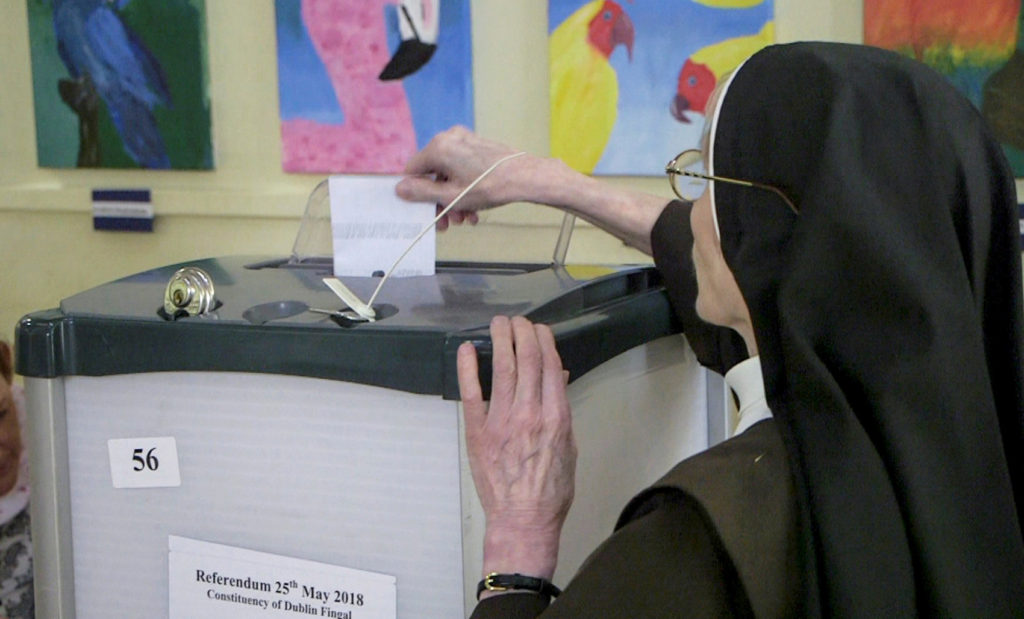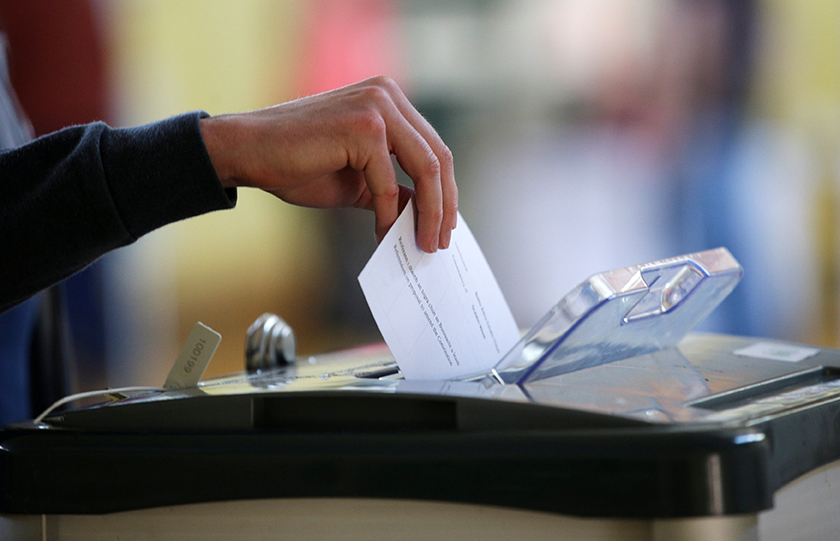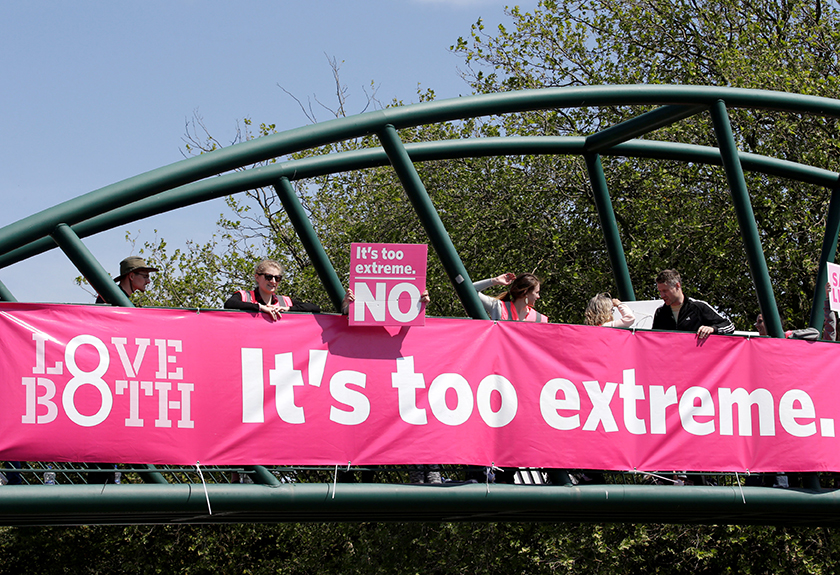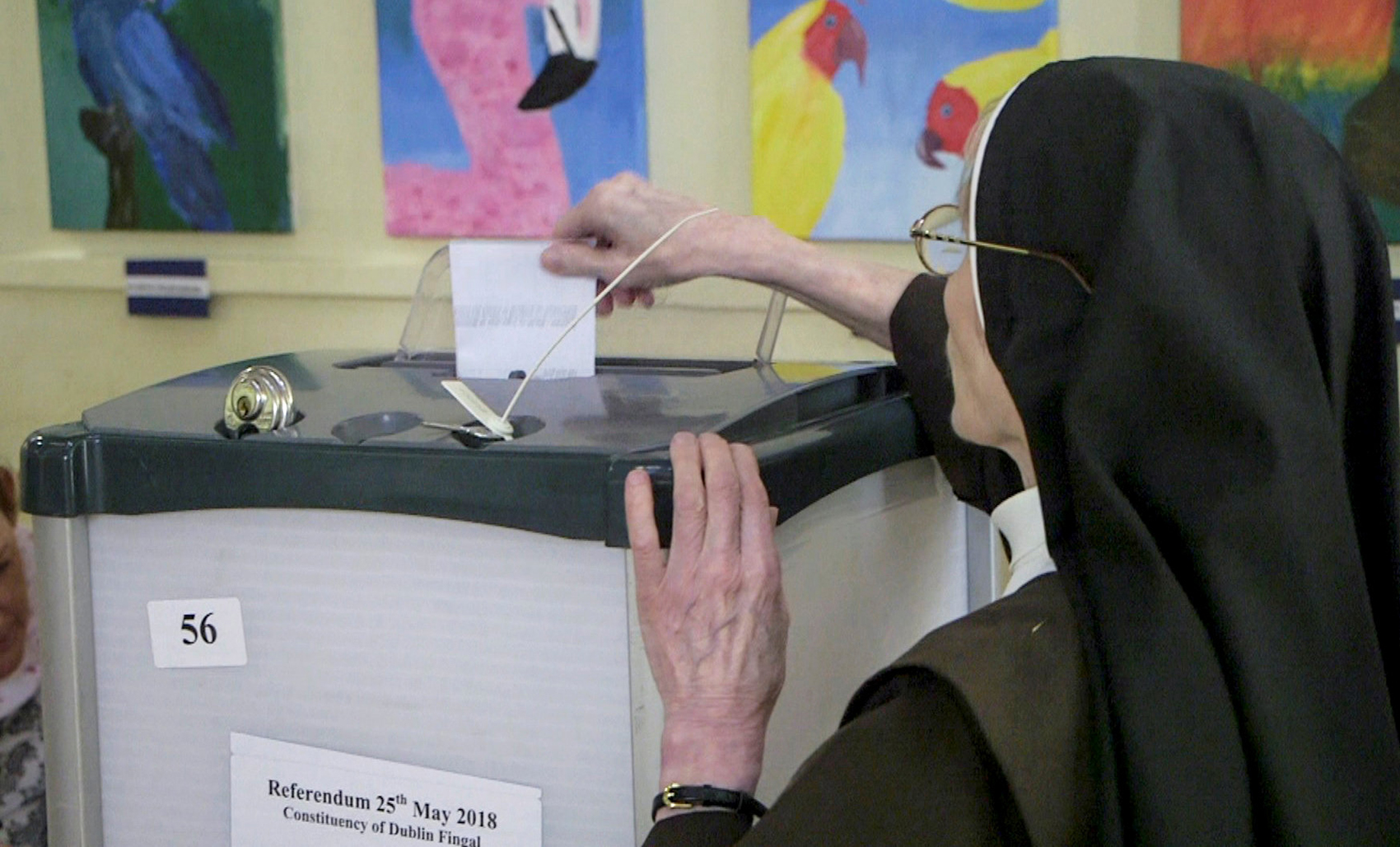
By Michael Kelly
Catholic News Service
DUBLIN (CNS) — An Irish bishop said he hopes Pope Francis’ August visit can help bring healing after a divisive referendum that will pave the way for abortion on demand up to 12 weeks’ gestation.
In a May 25 referendum, voters opted by a margin of 66.4 percent to 33.6 percent to remove the right to life of the unborn from the constitution.
Bishop Brendan Leahy of Limerick told Massgoers May 26 that the result “is deeply regrettable and chilling for those of us who voted ‘no.’”
He said “the final result of the referendum is the will of the majority of the people, though not all the people.”
“It is a vote, of course, that does not change our position. Our message is one of love: love for all, love for life, for those with us today, for those in the womb,” he said.
Referring to Pope Francis’ Aug. 25-26 visit, Bishop Leahy said: “In August, we will unite as a family, to renew that sense of family when the World Meeting of Families comes here. We have the privilege of Pope Francis coming, and today I cannot think of his visit being more timely: to come here and remind us of the importance of family, of the love we have of family, of the reality that, yes, families get bruised sometimes, but they should never be broken.
“So we go forward to that moment, we look forward to the healing it will bring and how we will be renewed again in love and care for one another,” he said.
Archbishop Diarmuid Martin of Dublin, primate of All-Ireland, insisted that “the Irish Church after the referendum must renew its commitment to support life.”
Speaking during a homily at Mass for the ordination to the diaconate of four seminarians at the national seminary in Maynooth, County Kildare, Archbishop Martin insisted that the Church is called to be pro-life “not just in words and statements and manifestoes, but to be pro-life in deeds, by being a Church which reflects the loving care of Jesus for human life at any stage.
“That loving care includes support to help those women who face enormous challenges and who grapple with very difficult decisions to choose life,” he said.
Archbishop Martin said during the homily that “the challenge of witnessing to Jesus Christ in today’s world is not an easy one. Many will see the results of Friday’s referendum as an indication that the Catholic Church in Ireland is regarded today by many with indifference and as having a marginal role in the formation of Irish culture.
“The Church that is called to make present the Jesus who is full of mercy and compassion is seen by many as somehow weak in compassion,” he said.

An exit poll conducted by the Ireland’s national broadcaster RTE asked voters what motivated them to opt for either “yes” or “no.” Among “yes” voters, the most important issues were the right to choose (84 percent), the health or life of the woman (69 percent), and pregnancy as a result of rape (52 percent).
Voters inserted the original amendment in the constitution in 1983 by a margin of 2-1, and it “acknowledges the right to life of the unborn and, with due regard to the equal right to life of the mother, guarantees in its laws to respect, and, as far as practicable, by its laws to defend and vindicate that right.”
That text will now be deleted and replaced with an article stating that “provision may be made by law for the regulation of termination of pregnancy.”
Minister for Health Simon Harris has said he would introduce legislation that would allow abortion on demand up to 12 weeks, up to 24 weeks on unspecified grounds for the health of the mother, and up to birth where the child is diagnosed with a life-limiting condition that means he or she may not live long after birth.
Among “no” voters, they cited the right to life of the unborn (76 percent), the right to live of those with Down syndrome or other disabilities (36 percent), and religious views (28 percent).
John McGuirk, spokesman for Save the Eighth, which campaigned for a “no” vote, described the outcome as “a tragedy of historic proportions.”
“The Eighth Amendment did not create a right to life for the unborn child — it merely acknowledged that such a right exists, has always existed and will always exist,” he said, insisting that “a wrong does not become right simply because a majority support it.”
“We are so proud of all of those who stood with us in this campaign — our supporters, our donors, our families and our loved ones,” he said. “This campaign took a huge personal toll on all of us who were involved, and we have been so grateful for their support.”
Insisting that pro-life campaigners will continue their efforts, McGuirk told Catholic News Service: “Shortly, legislation will be introduced that will allow babies to be killed in our country. We will oppose that legislation. If and when abortion clinics are opened in Ireland, because of the inability of the government to keep their promise about a (general-practitioner-led health) service, we will oppose that as well.
“Abortion was wrong yesterday. It remains wrong today. The constitution has changed, but the facts have not,” he said.

Ruth Cullen of the LoveBoth campaign insisted that the organization will try to ensure that the Irish prime minister, or Taoiseach, Leo Varadkar, is true to his pledge that the government will work to ensure that abortions are rare.
“We will hold the Taoiseach to his promise that repeal would only lead to abortion in very restrictive circumstances. He gave his word on this, now he must deliver on it. No doubt many people voted for repeal based on the Taoiseach’s promises in this regard,” she said.
Commenting on the campaign, Cullen said: “We are immensely proud and grateful to all our volunteers throughout the country who worked tirelessly over recent months to ensure unborn babies would not be deprived of legal protections.
“The campaign to protect unborn babies will endure,” she said.
Eamonn Conway, a theologian at Mary Immaculate College in Limerick, told Catholic News Service he was “greatly saddened” by the result. However, he pointed out that “the truth is that the Irish Constitution merely recognized the right to life that is antecedent to all law. This most fundamental of all human rights is not extinguished or diminished because our constitution no longer acknowledges it. What is diminished is our constitution,” he said.
Conway said he believes “the task facing the Catholic Church now is to ensure that it makes every effort to accompany with the healing compassion of Christ everyone caught up in the tragic circumstances that surround an abortion … from grieving parents to medical practitioners.”







